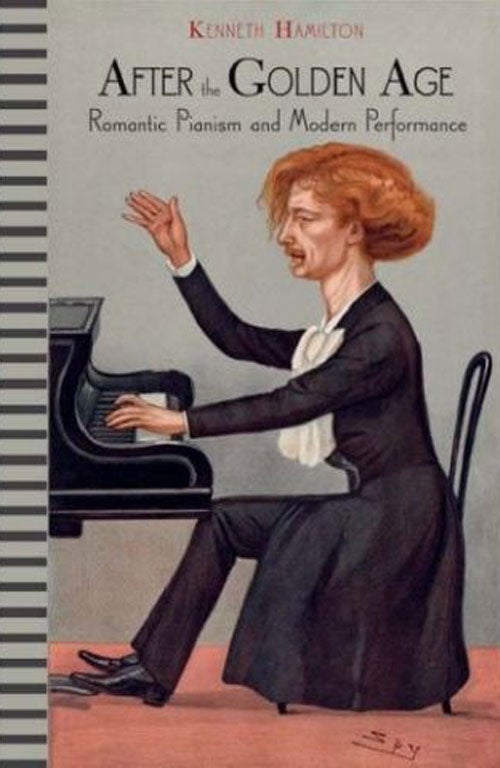After the Golden Age by Kenneth Hamilton
Liszt with a twist: the piano virtuoso who had a sideline in stand-up comedy

Your support helps us to tell the story
From reproductive rights to climate change to Big Tech, The Independent is on the ground when the story is developing. Whether it's investigating the financials of Elon Musk's pro-Trump PAC or producing our latest documentary, 'The A Word', which shines a light on the American women fighting for reproductive rights, we know how important it is to parse out the facts from the messaging.
At such a critical moment in US history, we need reporters on the ground. Your donation allows us to keep sending journalists to speak to both sides of the story.
The Independent is trusted by Americans across the entire political spectrum. And unlike many other quality news outlets, we choose not to lock Americans out of our reporting and analysis with paywalls. We believe quality journalism should be available to everyone, paid for by those who can afford it.
Your support makes all the difference.If you had attended one of Liszt's piano recitals in the late 1830s, you might have been invited to place a scrap of paper into an urn with a suggestion for a tune you'd like to hear Liszt improvise upon. You might bump into the maestro himself as he mingled with the audience (wearing his famous Hungarian sabre). Liszt would pull out the scraps, choose a tune and give it the treatment. One night, someone had written: "Is it better to marry or remain single?" Liszt read this aloud and then quipped: "Whichever course one chooses, one is sure to regret it."
Fast-forward to a recent all-Beethoven concert by a famous pianist of today. Before he comes out, a minion appears to warn the audience that they must not cough or make any noise during the performance, because this would destroy the artist's needle-sharp concentration. The artist himself then appears "with grim visage", and proceeds to perform as though dispensing holy writ.
Between these two recitals lie 150 years, during which time concert-giving has changed enormously. The pianist and author Kenneth Hamilton is an ideal guide to the changes, his dry Scottish humour the perfect weapon with which to skewer egos and pomposity.
As he points out in this delightful book, we can't rediscover original instruments and performance practice without speaking of the original audience. Until the early 20th century, it would interrupt the playing with signs of noisy approval, might talk during quiet passages, and might call out to demand that an enjoyable flourish be repeated.
Programming was lively, too. Throughout the "golden age" of Romantic piano-playing, it was not usual to perform whole sonatas as these were thought too severe. Improvisation was popular, as was the habit of "preluding", or making up musical links between items. Players might give themselves breaks while they chatted with friends in the audience. Most pianists were also composers, and routinely included their own pieces. Playing from memory was not required, and sometimes even frowned on.
Customs have certainly changed: but which are better? Silence can indicate rapt attention, and surely players of any era would flourish in such an atmosphere. But what is the point of listeners who are silent because they feel intimidated? Performance styles and audience behaviour are in continual flux, and what seems mandatory today will eventually come to seem merely typical of the early 21st century.
Join our commenting forum
Join thought-provoking conversations, follow other Independent readers and see their replies
Comments